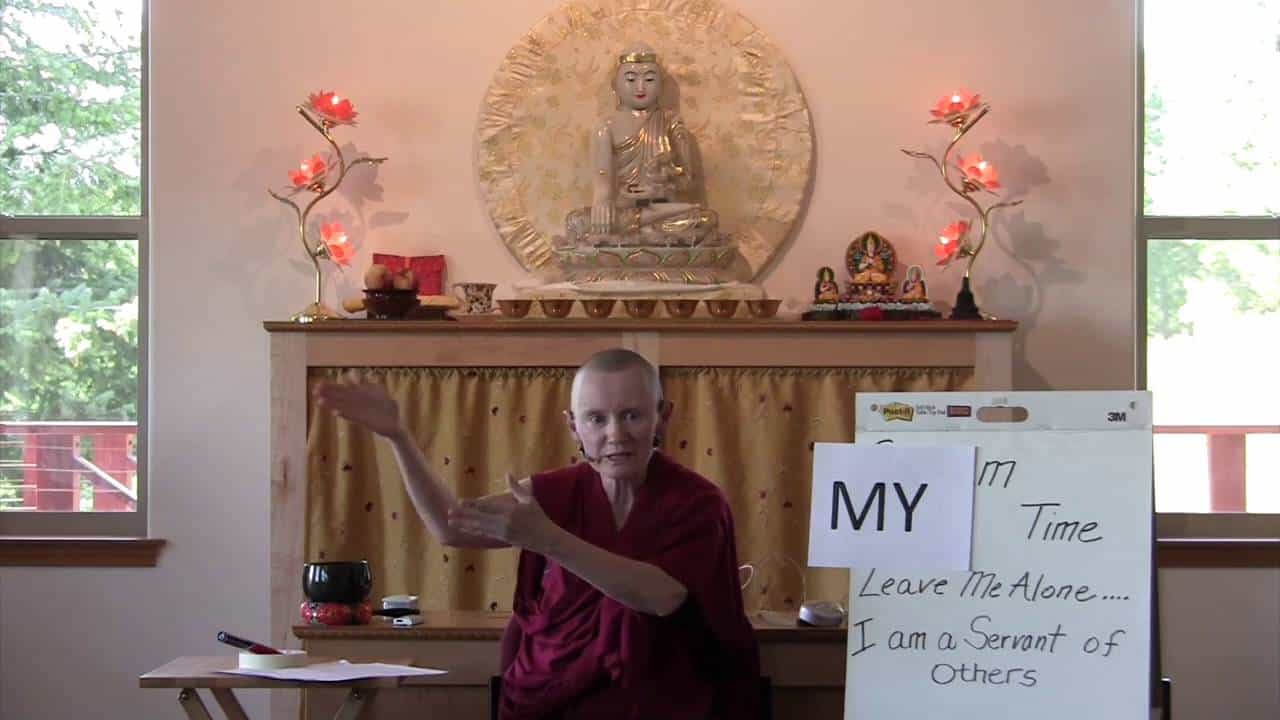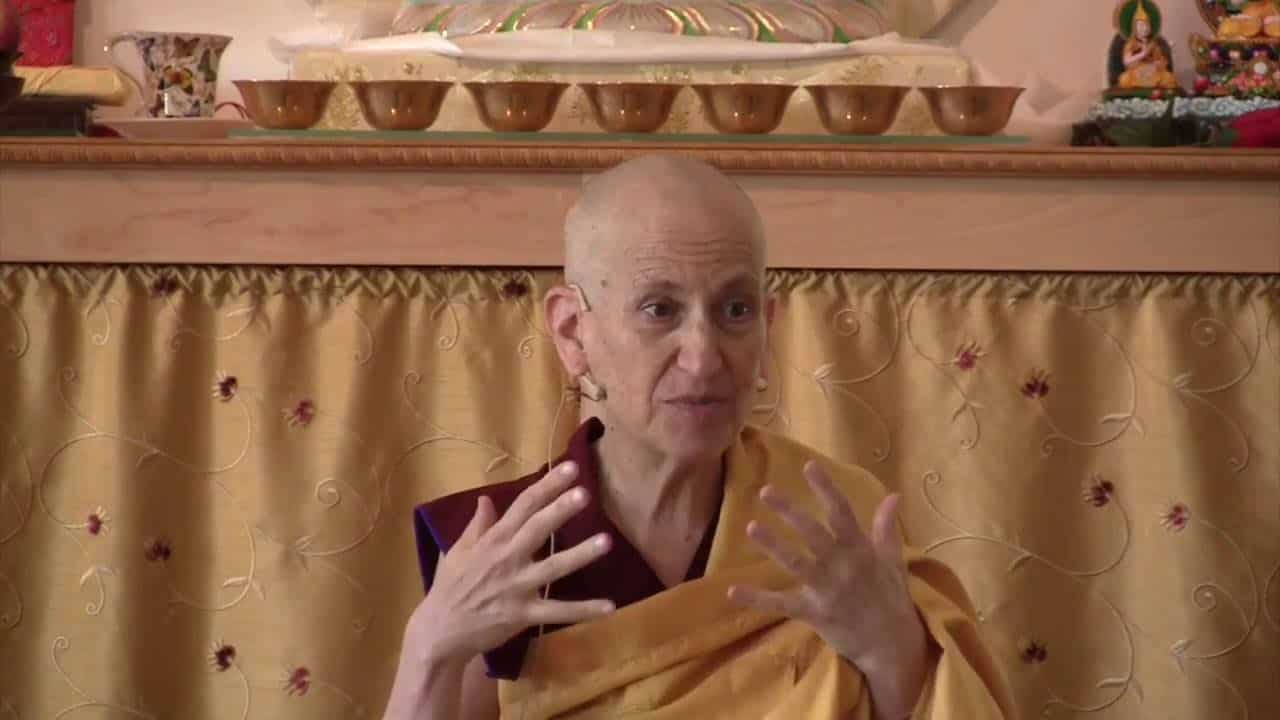Taking rebirth from the intermediate state
The text turns to training the mind on the stages of the path shared with intermediate level practitioners. Part of a series of teachings on the Gomchen Lamrim by Gomchen Ngawang Drakpa. Visit Gomchen Lamrim Study Guide for a full list of contemplation points for the series.
- The process of moving from the intermediate state to a new rebirth
Gomchen Lamrim 53: Taking rebirth from the intermediate state (download)
Contemplation points
The reality of transitioning to the next life isn’t glamourous. The mind can be resistant to thinking of the details of the death process, our time in the bardo, and how we take our next rebirth. As we looked at last week, the point of studying these teachings is to fuel our renunciation, to cultivate a healthy sense of aversion for samsara. With that in mind, contemplate:
- What does hearing a teaching like this bring up for you? Do you feel resistance? Why do you think that is?
- Venerable Chodron said we are “creatures of habit.” meaning that at the time of death, the same kinds of thoughts will arise in our mind that we have spent a lifetime cultivating. The death process is very confusing and we’ll have very little control over our minds at that time. As a result, the thoughts we cultivate in our mind in each and every moment, right here, right now, will determine the kinds of thoughts that will arise at death and influence our rebirth.
- Knowing that a mind of negativity and clinging will surely lead to rebirth in the lower realms, and thoughts of virtue and refuge will lead to rebirth in the upper realms, what kinds of thoughts do you want to cultivate in your mind in your every day life?
- What can you do today to start working towards overcoming the complaining, dissatisfied mind, and instead cultivate contentment, refuge, and a wish to be of benefit to others.
- Keeping in mind that we have to pay attention now and do what we can to set really good habitual patterns, consider ways to start that process.
- Venerable Chodron suggested starting with cultivating contentment. For instance, when something sudden happens, what is your response? Frustration? Anger? Aversion? When you don’t get what you want, when someone criticizes you, when the food isn’t just right or someone doesn’t say “Hi” to you in a way you consider friendly, what is your response?
- What can you do to cultivate contentment in these small ways, helping to build a greater sense of equanimity for your experience?
- Consider how doing this now benefits you at the time of death.
- Sunsets, flowers, romance, our favorite meal, a child’s laugh… these things all make us forget the realities of samsara. We cling to them and forget that there is more to it. We are reborn and die, going through this process again and again and again. We leave our bodies, our possessions, and our loved ones again and again and again. We start over with nothing but our karma again and again and again, struggling to survive, clinging after our objects of attachment again and again and again. Feel a sense of exhaustion at the thought of this painful cycle of existence. Resolve to abandon the causes for it and to cultivate contentment, refuge in the Three Jewels, and to practice the path as best you can.
Venerable Thubten Chodron
Venerable Chodron emphasizes the practical application of Buddha’s teachings in our daily lives and is especially skilled at explaining them in ways easily understood and practiced by Westerners. She is well known for her warm, humorous, and lucid teachings. She was ordained as a Buddhist nun in 1977 by Kyabje Ling Rinpoche in Dharamsala, India, and in 1986 she received bhikshuni (full) ordination in Taiwan. Read her full bio.


